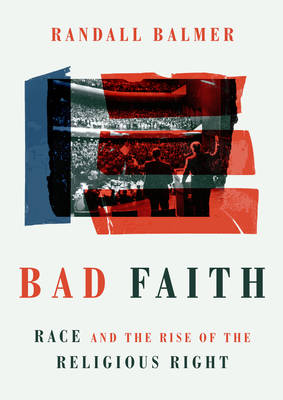
- Afhalen na 1 uur in een winkel met voorraad
- Gratis thuislevering in België vanaf € 30
- Ruim aanbod met 7 miljoen producten
- Afhalen na 1 uur in een winkel met voorraad
- Gratis thuislevering in België vanaf € 30
- Ruim aanbod met 7 miljoen producten
Zoeken
€ 23,95
+ 47 punten
Prijzen
Omschrijving
What really gave rise to the Religious Right?
There is a commonly accepted story about the rise of the Religious Right in the United States. It goes like this: with righteous fury, American evangelicals entered the political arena as a unified front to fight the legality of abortion after the Supreme Court's 1973 Roe v. Wade decision. The problem is this story simply isn't true. Bad Faith recounts how it was in fact the elimination of tax-exempt status for racially discriminatory Christian institutions, like Bob Jones University, that galvanized evangelicalism into a political force. Only later, when something more palatable was needed to cover for what was becoming an increasingly unpopular position following the civil rights era, was the moral crusade against abortion made the leading issue. Through exhaustive research and trenchant historical analysis, Randall Balmer exposes the ingrained priorities of the Religious Right movement and uncovers the roots of coded evangelical watchwords like "religious freedom" and "family values"--helping to explain, in part, what this movement has become.Specificaties
Betrokkenen
- Auteur(s):
- Uitgeverij:
Inhoud
- Aantal bladzijden:
- 141
- Taal:
- Engels
Eigenschappen
- Productcode (EAN):
- 9780802879349
- Verschijningsdatum:
- 10/08/2021
- Uitvoering:
- Hardcover
- Formaat:
- Genaaid
- Afmetingen:
- 128 mm x 180 mm
- Gewicht:
- 217 g

Alleen bij Standaard Boekhandel
+ 47 punten op je klantenkaart van Standaard Boekhandel
Beoordelingen
We publiceren alleen reviews die voldoen aan de voorwaarden voor reviews. Bekijk onze voorwaarden voor reviews.










